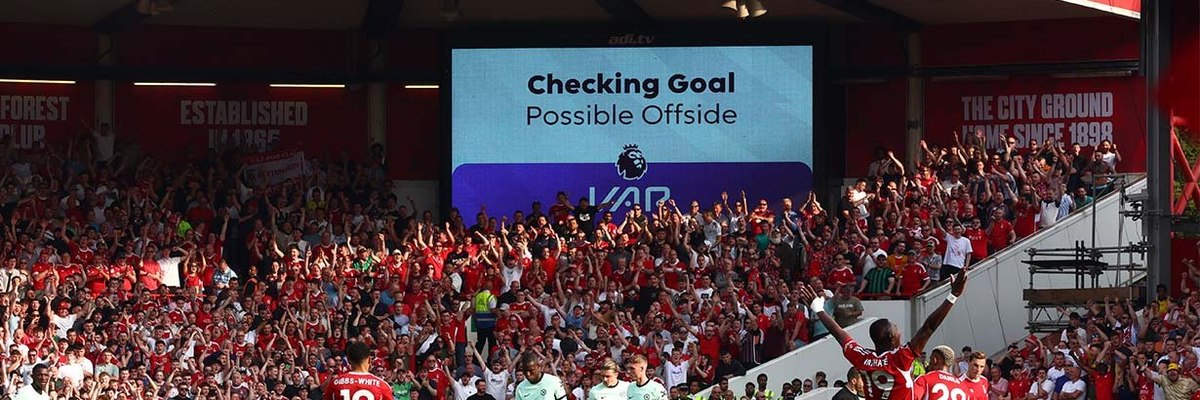The Premier League will vote on 6 June whether to keep or scrap the use of video assisted referees (VARs) after Wolverhampton Wanderers tabled a motion in favour of abandoning the technology. For the motion to pass, 14 of the 20 clubs would have to vote in favour of scrapping VAR use, but it faces opposition from Arsenal, Chelsea and Liverpool.
New YouGov research has found almost nine in ten Premier League viewers want changes to how VAR is used or for it to be scrapped altogether, but most of those would opt to keep it so long as reforms are made.
YouGov has been tracking the opinion of frequent Premier League viewers towards VAR since it was introduced during the 2019-20 season. There is now a clear majority of viewers who think VAR is doing badly, with three in five (59%) believing so; this is up 10 points from October 2023 (49%), but the same as when we asked halfway through its first season in January 2020 (60%). The way in which opinion is shifting back and forth may suggest that opinion could be sensitive to recent controversies, but nevertheless suggest a solid bedrock of unhappiness with the system.
Just a quarter (27%) in our latest survey say the VAR system is performing well (down from 38% in October), while 13% feel it has been going neither well nor badly.
Two thirds of Premier League viewers now say VAR has made watching the game less enjoyable to watch, at 68% (up from 54% in October).
What should VAR be used for?
Despite having a negative view of VAR since our last poll, viewers are generally divided or unsure where they think it’s working well and where it isn’t.
While a quarter of fans (24%) think VAR is doing well at correcting the offside rule, another quarter believe it is doing badly at this (23%). Opinion is about the same when it comes to deciding whether a foul should be given a straight red card (25% well, 23% badly), and whether a penalty should be awarded (25% well, 24% badly).
Premier League viewers are more confident in the ability of VAR to confirm whether the ball completely passed over the goal line – 39% think it does this well, while just 9% say badly.
It is worth noting, however, that in each of these cases about half of our viewers are unsure one way or the other about the performance of VAR.
There is somewhat more certainty on whether VAR should be used to make any of these calls in the first place. Between 36% and 46% say that VAR should be used across each of the five scenarios we asked about, compared to only 9-16% who say it should not be used.
Again, however, almost half of Premier League viewers answered “don’t know” to each VAR use case.
A clear majority of viewers support proposed changes to VAR
Viewers are certain, however, that change is needed, with almost nine in ten preferring to reform or scrap the use of VAR in the Premier League. A clear majority (64%) think VAR should continue to be used so long as reforms are made. One in five fans (22%) say VAR should be scrapped entirely, suggesting the motion behind the vote is generally unpopular among fans of the league. Only 10% say VAR should continue to be used without changes.
When the clubs meet to vote at their annual general meeting, proposed reforms to VAR are expected to be discussed. Of those that we asked about, a clear majority of fans are in favour of the proposals.
The most popular among viewers is being able to see the video footage the video assistant referees are being shown at the same time they are being shown it, at 82%. A clear majority also support being able to hear the conversations between referees and VARs (79%) and three quarters support a time limit on how long it can take for decisions to be made using VAR (74%).
Two-thirds (66%) are also in favour of encouraging the on-field referee to consult pitch-side VAR screens. Opinion on these changes is similar to last October when VAR failed to overturn an offside call, disallowing a Liverpool goal that eventually saw them lose against Tottenham Hotspur.
What do you think about VAR, whether it should be scrapped, and everything else? Have your say, join the YouGov panel, and get paid to share your thoughts. Sign up here.
Photo: Getty










